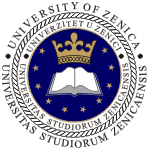THE CONTENT OF As, Pb AND Cd IN ENVIRONMENTAL SAMPLES IN MUNICIPALITY OF KIJEVO
Toxic metals like arsenic(As), lead (Pb)and cadmium(Cd) are the major indicators of environmental pollution that have serious impact to human health as well as the environment. Measurement of these metals were done in the samples of : selected plants, Željeznica river, and agricultural soil in the municipality of Kijevo near Sarajevo ci...
By Aida Šapčanin, Zahida Begović, Amna Kukić, Farzet Bikić
EXAMINATION OF THE POSSIBILITY OF ENHANCING THE PHYTOREMEDIATION POTENTIAL OF PLANTS THROUGH COMPLEXATION OF ALKALINE SOIL
This study presents the results of applied phytoextraction as a soil phytoremediation method, based on the analysis of selected heavy metal content in soil and plant material. The selected locations where phytoextraction was applied as a phytoremediation method (Gradišće, Podbrežje, and Tetovo) are situated in the city of Zenica, in ...
By Farzet Bikić, Muvedet Šišić, Sanela Beganović, Amira Pašalić, Adnan Mujkanovic, Aida Šapčanin, Vedran Stuhli, MIrnesa Čorbić
PHYTOREMEDIATION POTENTIAL OF WILD PLANTS
Phytoremediation with wild plant species could be environment friendly and economical solution. Selected wild plants like mint, oregano, chamomile, nettle and St. John’s wort, from rural area in Bosnia and Herzegovina, were collected, lyophilized and acid digested for heavy metals analysis. Nickel (Ni), copper (Cu), chromium (Cr), cadmium (Cd...
By Šaćira Mandal, Aida Šapčanin
THE LONG-TERM IMPACT OF HEAVY METALS FROM THE BOSNA RIVER ON HUMAN HEALTH
Heavy metals can enter into rivers through industrial and consumer waste, activities of acidic rainto soils, etc. Long-term exposure can result in damaging: mental and nervous function, bloodcomposition, lungs, kidneys, liver, and other vital organs. Estimating a health risk based on thecontents of heavy metals found in river Bosna was the aim of t...
By Aida Šapčanin, Farzet Bikić
SCREENING OF PARTICULATE MATTER IN THE URBAN AREA OF SARAJEVO
Particulate matter enters the atmosphere as a result of human activity, as well as natural processes.Since we still cannot influence natural processes, reducing the concentration of floating particlesis possible only by adjusting human activity. The emission of solid particles occurs during a largenumber of everyday activities. Depending on the act...
By Aida Šapčanin, Aida Hasanović, Farzet Bikić
